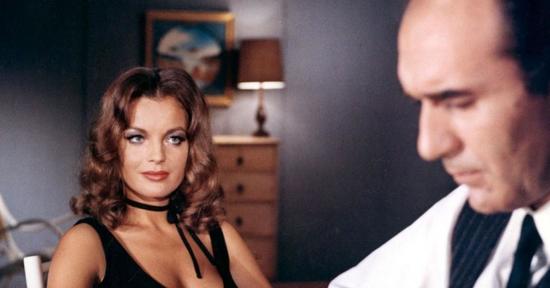Last night I saw ‘Max and the junkmen’ (Max et les ferrailleurs) at Alliance Française by Claude Sautet. I had never heard of director Claude Sautet, but apparently in 2012 there was a Claude Sautet retrospective at the Elinor Bunin Munroe Film Center.
Back then, A.O. Scott wrote about ‘Max and the junkmen’:
‘Max (Michel Piccoli) is different. A former administrative judge who at some point in the past traded his gavel for a badge and a gun, he stands out as a somber and aloof figure among his colleagues. His wide-brimmed black hat is closer to what a sheriff in a western might wear than to the standard fedora of the urban lawman, and family money frees him from the necessity of filing expense reports for the bachelor pad he rents or the prostitute he pretends to employ as he pursues his big case.
These are not the perks of ordinary corruption, but rather signs of Max’s perverse and terrifying zeal. He believes, almost as a philosophical conviction, that the only real way to solve a crime is to catch the perpetrator in the act. The problem, of course, is that criminal behavior, like the rest of human life, is rarely predictable enough to ensure that outcome. Max’s solution is to manufacture the crime he will solve, indirectly but methodically manipulating an old army buddy into planning a bank job.
The friend, Abel (Bernard Fresson), lives in Nanterre, an unlovely suburb where he and some pals — the “ferrailleurs,” or junkmen, of the title — eke out a livelihood stealing scrap metal and chopping cars. Their lack of ambition is the opposite of Max’s professional monomania, and some of the film’s suspense arises from doubt about whether they will prove too lazy and disorganized to attempt the armed robbery that Max intends to foil.
His secret weapon is Lily (Romy Schneider), a German streetwalker who lives with Abel and who has slightly loftier aspirations than he does. Max, pretending to be a lonely, divorced banker, becomes her most loyal and lucrative customer, even though they never have sex. Instead, they drink wine, play cards and lounge around Max’s apartment until their artificial intimacy starts to resemble the real thing.’
Read the article here.
The relationship, if that is the word, between Max and Lily, is the secret of the movie. It’s an experiment in manipulation in the name of a noble goal, or so Max thinks, to capture a bunch of small operators and petty criminals. (As already has been pointed out, the fact that the crime is provoked by him doesn’t seem to bother Max or his superiors.)
The moment that Lily realizes she has been betrayed is, thanks to Romy Schneider, one of the more heartbreaking scenes in the movies.
The artificial intimacy resembles the real thing and the real thing, but that’s another story, so often becomes artificial intimacy.
